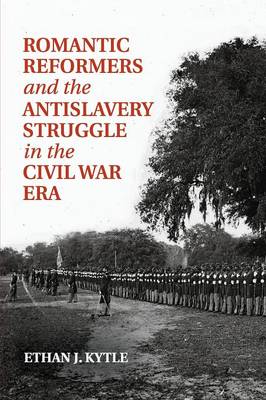On the cusp of the American Civil War, a new generation of reformers, including Theodore Parker, Frederick Douglass, Harriet Beecher Stowe, Martin Robison Delany and Thomas Wentworth Higginson, took the lead in the antislavery struggle. Frustrated by political defeats, a more aggressive Slave Power, and the inability of early abolitionists like William Lloyd Garrison to rid the nation of slavery, the New Romantics crafted fresh, often more combative, approaches to the peculiar institution. Contrary to what many scholars have argued, however, they did not reject Romantic reform in the process. Instead, the New Romantics roamed widely through Romantic modes of thought, embracing not only the immediatism and perfectionism pioneered by Garrisonians but also new motifs and doctrines, including sentimentalism, self-culture, martial heroism, Romantic racialism, and Manifest Destiny. This book tells the story of how antebellum America's most important intellectual current, Romanticism, shaped the coming and course of the nation's bloodiest - and most revolutionary - conflict.
- ISBN13 9781107426986
- Publish Date 10 March 2016 (first published 30 July 2014)
- Publish Status Active
- Publish Country GB
- Imprint Cambridge University Press
- Format Paperback (US Trade)
- Pages 314
- Language English
